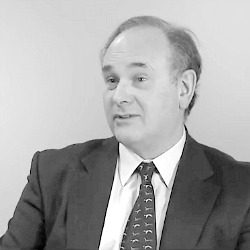Cataract
The Problem
What is a cataract?
A cataract is a clouding or frosting of the lens of the eye. This cloudiness is most commonly age related, but may be secondary to trauma to the eye, diabetes or other medical conditions, and can be hereditary.
The lens focuses light onto the retina and adjusts to allow us to focus on near or distant objects. As we age the clear crystalline lens can start to cloud, and this progresses over time. The vision will resembles the effect to that of looking through frosted glass. At this stage a new glasses prescription will not be able to correct your vision.
What is the lens?
The lens is the part of the eye that helps focus light on the retina (just like the lens of a camera). The retina is the eye’s light-sensitive layer that transmits visual signals through the optic nerve to the brain. The retina is like the photographic film in a camera. In a normal eye, light passes through the clear lens and gets focused on the retina. To help produce a sharp image.
What are the symptoms of a cataract?
A cataract typically develops slowly and may have little effect on vision at first. You may notice that your vision blurs. A cataract can also cause glare in bright sunlight or glare around lights. You might see glare at night when looking at oncoming car headlights. Some people report that colours may not appear as bright as they once did. Cataracts can sometimes cause double vision in the affected eye.
As the cataract progresses the clouding of the lens begins to cause symptoms. You may find it harder to read and do other day-to-day tasks.
At what age do cataracts develop?
Most patients become aware of cataracts after 60 years and tend to become denser and start to impact sight. Some people develop cataracts between the ages of 40 & 60 years, but these early cataracts rarely have a significant effect on vision.
How do we diagnose a cataract?
An optometrist will likely detect as part of your annual eye examination. If you suspect a cataract, a visit to your optometrist will be able to confirm this. Should he or she find a cataract they will be able to monitor it and advise you when you might benefit from treatment. Not all cataracts need immediate treatment and some may not need surgery for years.
The Treatment
When does a cataract need treatment?
With modern surgical techniques it is possible to operate on a cataract at an early stage. Cataracts do not need to be mature or ripen. There is no level of vision at which we recommend cataract surgery. We usually recommend cataract surgery if the quality of your vision declines and is affecting your lifestyle. We also recommend cataract surgery if your vision no longer meets the legal standards and you wish to drive.
How we treat cataracts?
Once a cataract develops and affects your daily life, we recommend treatment with cataract surgery. There is no effective treatment with drops. One of our eye surgeons will remove your clouded lens and replace it with a clear, plastic lens.
Cataract surgery is successful in restoring vision. It is the most common surgical procedures eye surgeons perform each year in the UK. It is also one of the quickest operations. At Grange Eye Consultants, we use micro-incision phaco technology to remove the cataract and some of our patients may benefit from laser femtosecond cataract surgery.
What can I do to protect my vision or prevent cataracts?
Research has not yet proved how to prevent cataracts.
People over the age of 60 are at risk for many vision problems. If you are 60 years or older, you should have an eye examination through dilated pupils, at least every two years. This kind of exam allows your optometrist or surgeon to check for signs of
- age-related macular degeneration
- glaucoma
- cataracts
and other vision disorders.
As seen in
What patients say
Weekly eye treatment updates
We regularly share updates and video blog posts on the most common eye treatments













